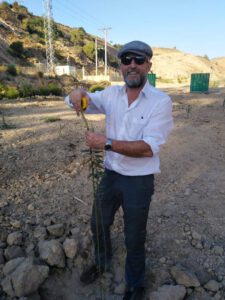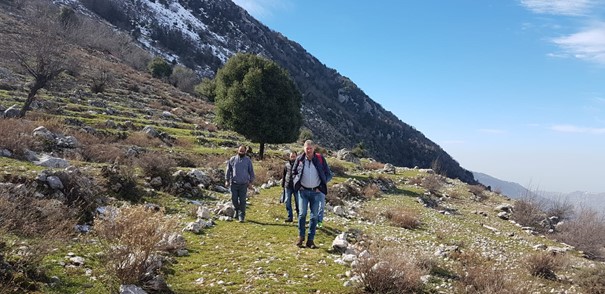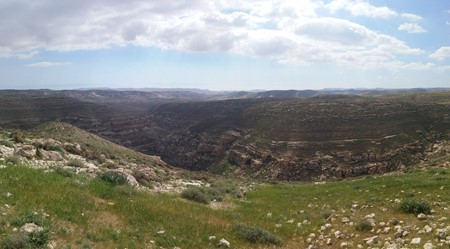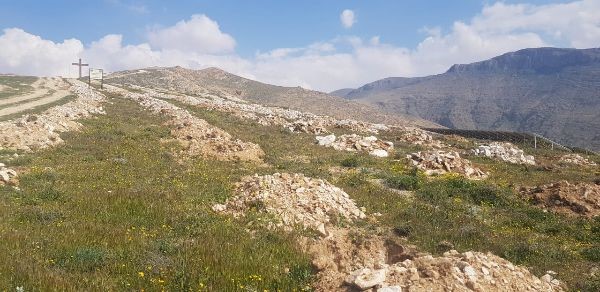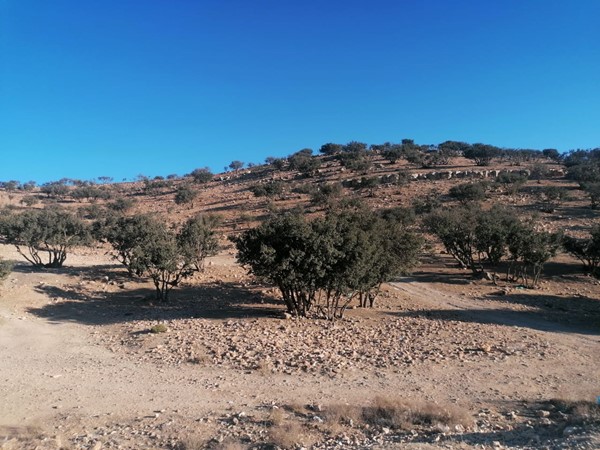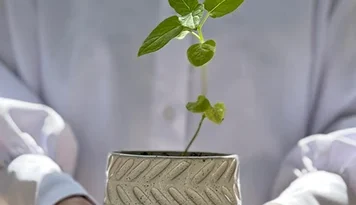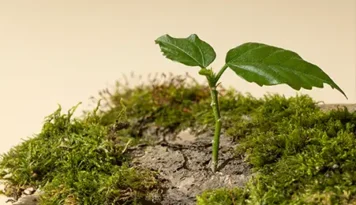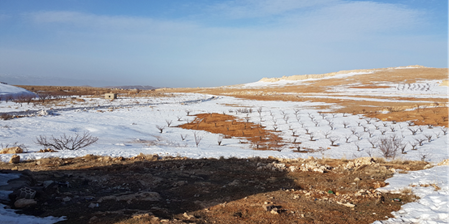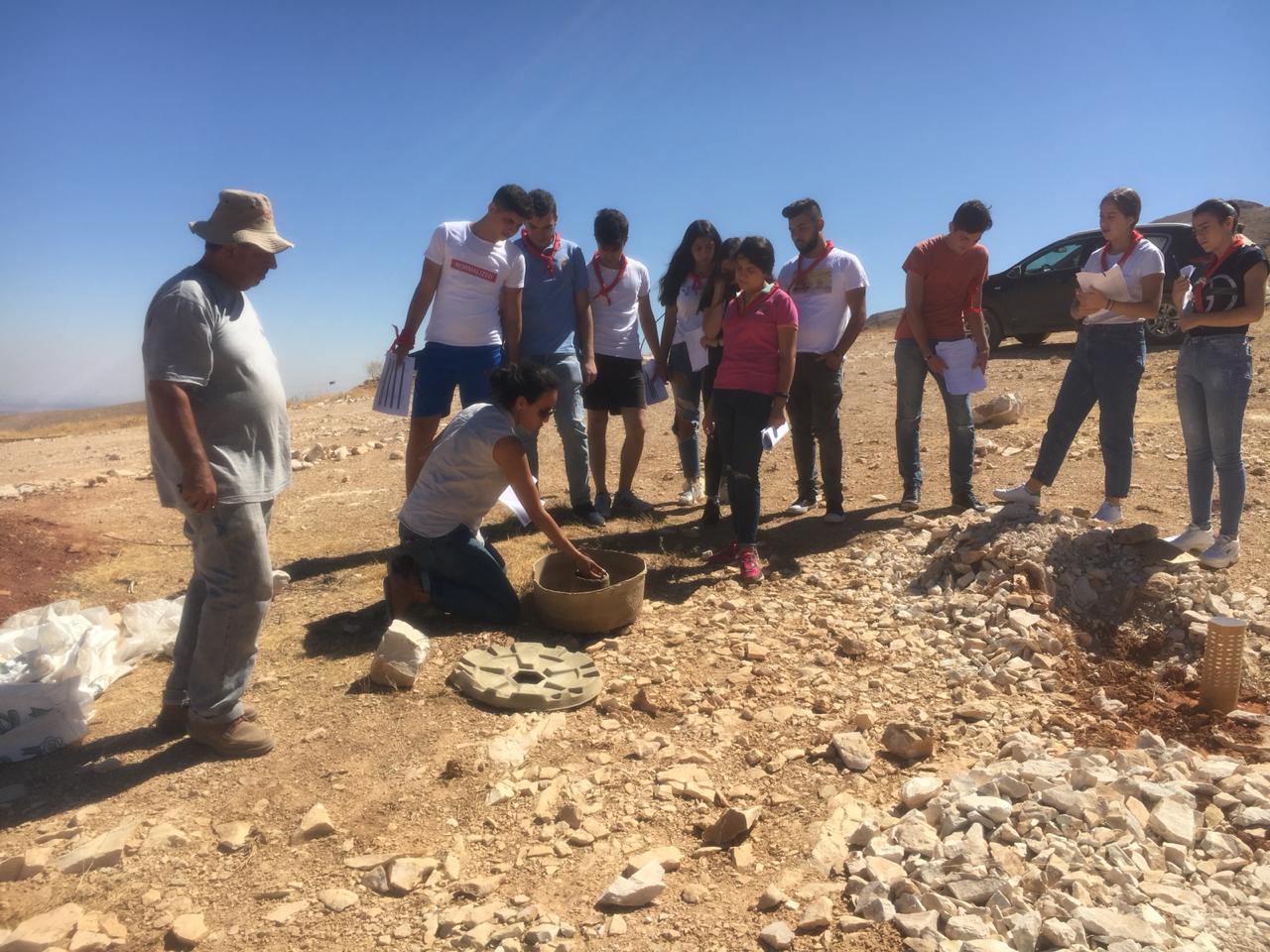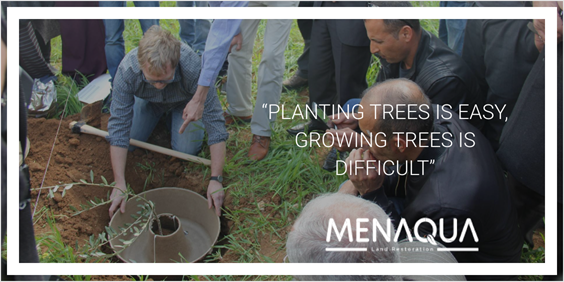It was in November 2018, after six months of intensive preparation, that we took our first physical steps in the Middle East. In Jordan to be exact. We had organized a big conference with the Ministry of Agriculture that aimed to introduce Menaqua and our recommended Cocoon technology to the Middle East.
The Middle East is viewed in different ways from here in the Netherlands. And we too, although blessed with colleagues from many corners of the world, are part of that same Netherlands. Especially during that first mission, we were occupied, consciously and unconsciously, with the question: how do we, as sober, enterprising Dutch people, relate to and interact with this culture? Now, more than four years, nine visits and 7,500 trees later, we are partly able to answer that question. That is what this blog is about.
But first back to beautiful Jordan. It was the Monday morning after our successful conference with around 100 participants. We were in the Ministry of Agric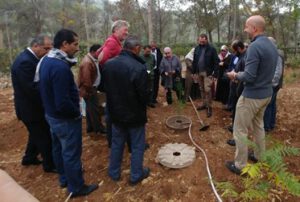 ulture’s nursery in the capital Amman with Menaqua’s Senior Hydrologist Jan Nonner and Director Jeroen Kosterman, Mohammad Chami, arborist from the Nature Conservation Center at the American University of Beirut (NCC-AUB), and a group of curious ministry officials. This was one of the first, if not the first, time that a Cocoon had gone into Jordanian soil. It was also an instructive lesson in what would later become our motto:
ulture’s nursery in the capital Amman with Menaqua’s Senior Hydrologist Jan Nonner and Director Jeroen Kosterman, Mohammad Chami, arborist from the Nature Conservation Center at the American University of Beirut (NCC-AUB), and a group of curious ministry officials. This was one of the first, if not the first, time that a Cocoon had gone into Jordanian soil. It was also an instructive lesson in what would later become our motto:
We listen. We learn. We plant. We grow.
Cultural differences
More about that in a moment. First, some apparent contradictions between our two cultures. The Dutch are well known for being direct – often too direct for the Middle East, we discovered. And we want results, preferably quickly and without too many detours.
In the Middle East, on the other hand, people take their time – for the process but also for each other. Greetings alone sometimes last a full minute. To us, there seems to be much less structure in how people approach things. During the first missions, we tried to resist this seeming lack of structure, but gradually we realized that it is much better to surrender and see what comes your way. We learned that this leads to often unexpected but always good solutions.
Business relationships and close friendships
Over the years, we have come to understand better how things are done in the Arab world. And our respect for our partners has led not only to solid business relationships but also some close friendships. We would like to mention three people here, but in our hearts and minds there are many others. Each of them has in his or her own way played a role in our efforts to regreen the Middle East.
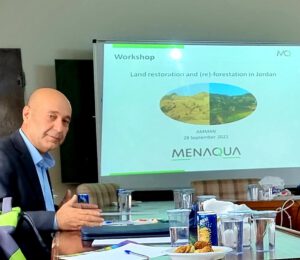 First among them is ‘our man’ in Jordan, Dr Mahmoud Al-Ferihat. During our first meeting in 2018, he stated that if our only goal in coming to Jordan was to introduce new technology, he gave our projects little chance. We took this warning seriously. We returned to Jordan in January 2019 for an exploratory mission, and in the intervening years we have planted almost 5,000 trees. It has been a costly process that we have been able to make sustainable through the contribution and commitment of his people at the various planting sites.
First among them is ‘our man’ in Jordan, Dr Mahmoud Al-Ferihat. During our first meeting in 2018, he stated that if our only goal in coming to Jordan was to introduce new technology, he gave our projects little chance. We took this warning seriously. We returned to Jordan in January 2019 for an exploratory mission, and in the intervening years we have planted almost 5,000 trees. It has been a costly process that we have been able to make sustainable through the contribution and commitment of his people at the various planting sites.
Then there is ‘our woman’ in Lebanon, Professor Salma Talhouk of the NCC-AUB. She is our scientific conscience on the one hand and our connec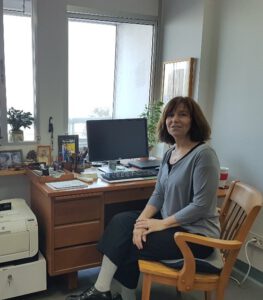 tion with ‘citizen science’, local communities and the creation of nature stewardship on the other. She is a power woman with a big heart and enormous perseverance.
tion with ‘citizen science’, local communities and the creation of nature stewardship on the other. She is a power woman with a big heart and enormous perseverance.
And finally, there is our financier. He has more than generously supported our start up, development and growth by providing not only financial support but also a critical and creative attitude. After four years, he has taken stock and decided that it is time we continue as Menaqua Foundation.
The next chapter
As a result, we are currently transitioning from being a company to learning to operate as a foundation. Let me take you back once more to what we have achieved in the past four years. In the West Bank, Jordan and Lebanon, we have planted a significant number of trees, of which a significant number are still alive. This is partly due to the Cocoon technology we use but mainly due to our dedicated local teams. In Gaza, together with the wonderful staff of Theatre Day Productions, we have introduced many schoolchildren to trees – some of them for the first time in their lives – and taught them how to grow their own tree.
This ‘I am Growing’ programme embodies what our work has been and will continue to be about: by listening to people, we learn. By planting trees with them, they grow. As they grow, so do we.
And we are still growing. And learning. Some members of our team are moving on – talented, ambitious people who will continue their path outside Menaqua but will remain our ambassadors. And that is what we need to continue as Menaqua Foundation: ambassadors like you who will support our vision of regreening Palestine, Jordan and Lebanon. We have invested together in a wonderful Middle Eastern adventure that we hope will be one of many to follow!
